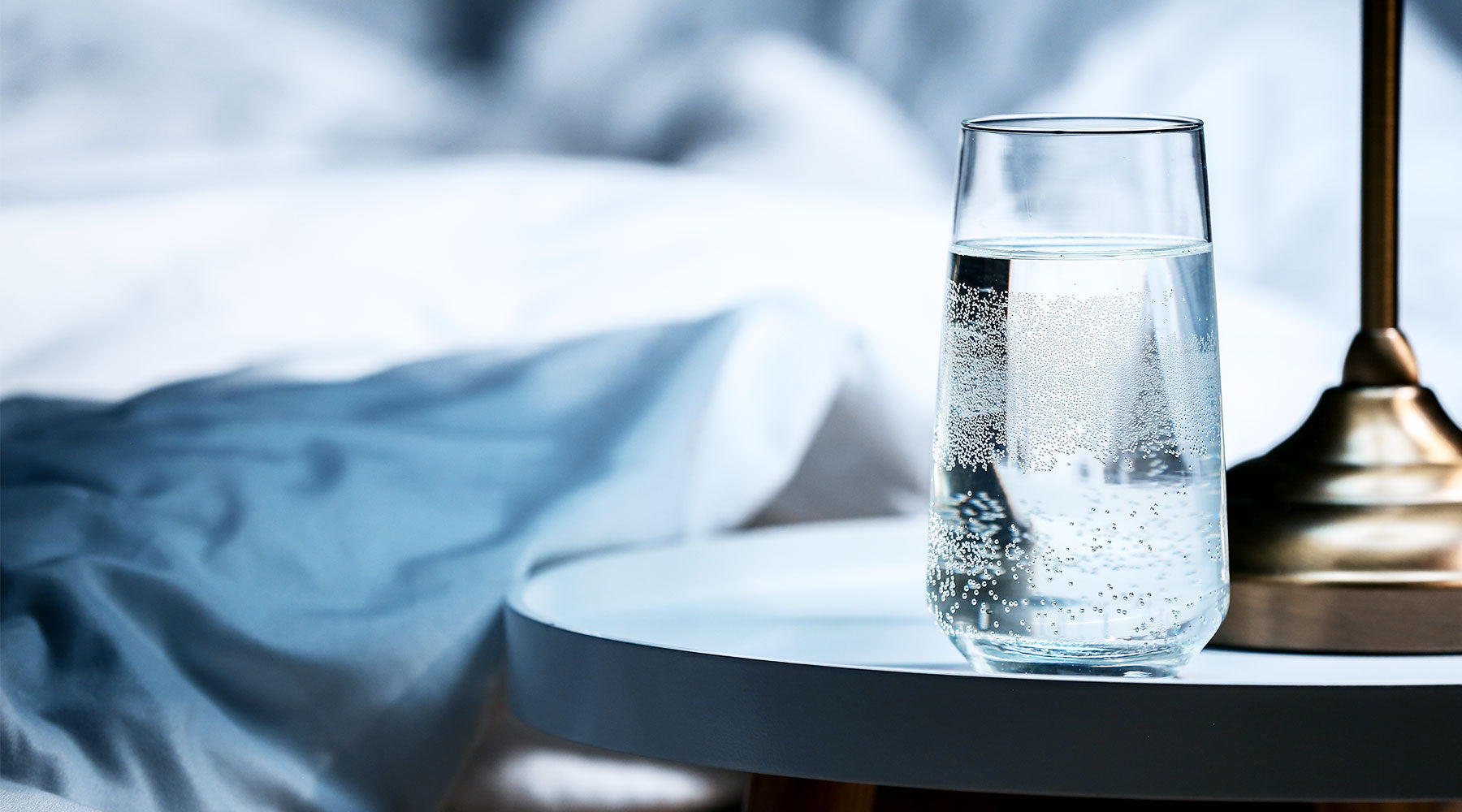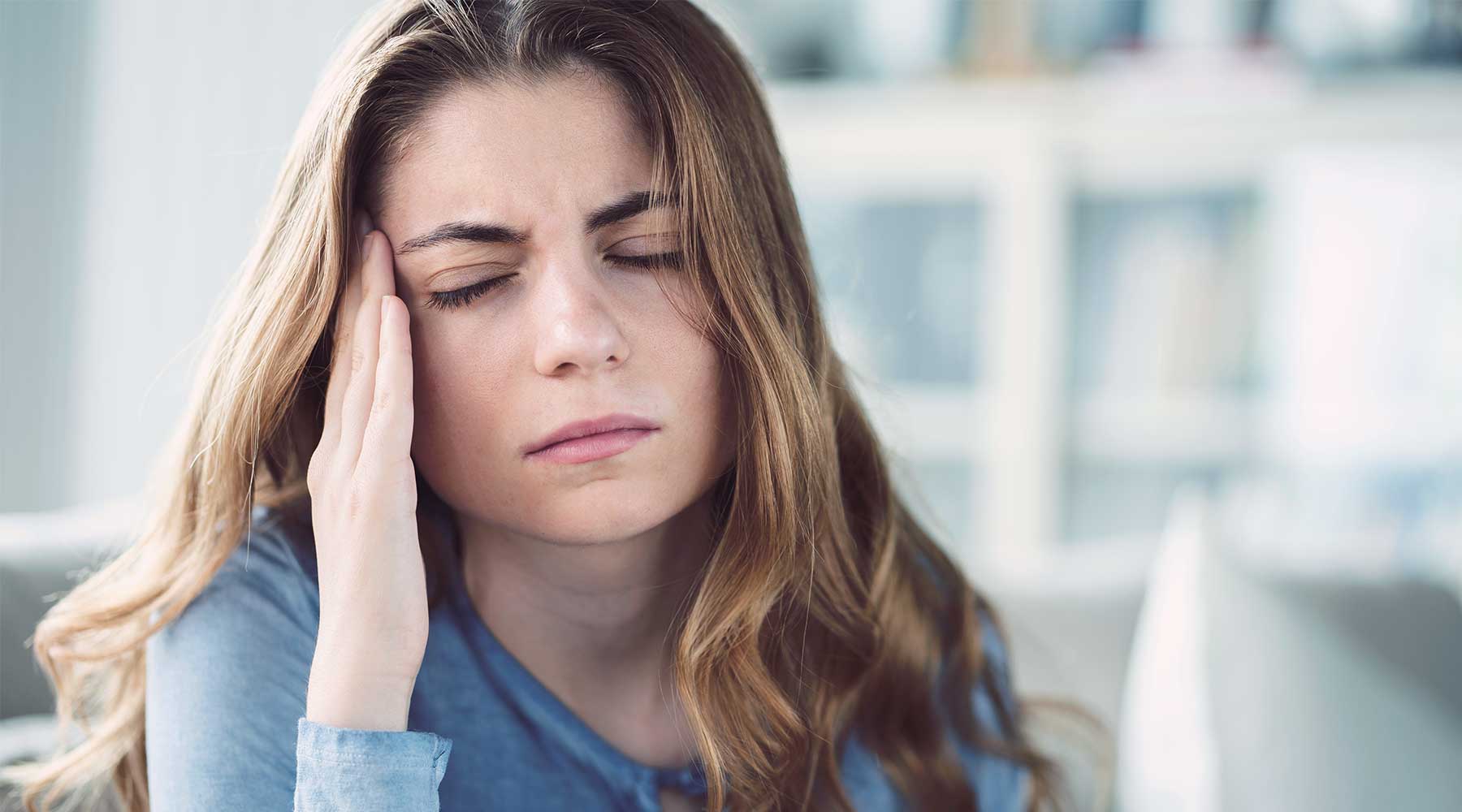
Neck pain after sleeping
Millions of people suffer from neck pain and tension after sleeping and start the day feeling less than rested, despite getting enough sleep. Learn more about the causes of these painful muscle aches in the morning and find simple tips you can use to prevent tension or quickly relieve it.
Table of contents
- Neck pain in the morning
- Causes of neck pain after sleeping
- Tips for relieving neck tension after getting up
- Preventive measures
- Tips for immediate help
- Conclusion
1. Neck pain in the morning
Neck pain and tension are widespread and particularly common in the morning. Estimates suggest that one in three people suffers from painful tension in the neck area at least once a year, and we're all familiar with the feeling of waking up with a stiff neck, unpleasant pain when moving, or even a headache, and having to start the day more exhausted than refreshed. As a result of an uncomfortable night's sleep, we not only suffer from oppressive, stabbing, or pulling neck pain during the day, but also feel physically restricted or struggle with the consequences of poor sleep, for example. fatigue, lack of energy, or concentration and attention problems. An uncomfortable night also affects sleep itself, because the tension in the morning is often not only the result of a lack of regeneration, but can also be a major reason why we don't get the rest we deserve despite a sufficiently long night's sleep.
The causes of muscular tension in the neck area are varied and also depend on whether the symptoms already exist before going to bed or only appear after sleep.
2. Causes of neck pain after sleeping
Incorrect sleeping position/unhealthy sleeping posture
One of the most common causes of neck pain after sleeping is an unsuitable sleeping position at night. Staying in one position for too long can have a negative impact on our back and neck. A natural and healthy position of the body, and especially the head, neck, and shoulders, is therefore essential for restful sleep and plays a key role in helping our muscles relax at night. Only then can muscle cells and tissue be rebuilt during sleep, and damage to cells or fibers repaired. For a healthy sleeping posture, the shoulders and cervical spine should be at right angles to each other, and the head and spine should form a straight line all the way to the pelvis.

Our pillow, mattress and our preferred Sleeping position determine the posture we spend the night in and how our sensitive cervical spine is positioned during sleep. The wrong pillow and a mattress that's too firm or too soft can lead to bending or compression of the cervical vertebrae, increased pressure on the lumbar spine, and uncomfortable muscle tension. This makes sleep less restful and morning neck tension practically inevitable.
Lack of movement/mobility
We humans are simply not designed to sit still for hours and without movement our muscles cannot supply themselves with enough oxygen and nutrients.A lack of exercise or poor posture in everyday life often leads to our joints, muscles, ligaments, and tendons not functioning optimally, leading to stiffness, tension, or pain. This not only affects our well-being, but also our sleep! Especially at night, a lack of physical relaxation hinders sleep itself and all the important recovery processes. Numerous studies also demonstrate that regular exercise and physical activity during the day have a positive effect on our sleep and help us fall asleep. You can learn more about this in this article our sleep magazine.
Stress & Lack of Relaxation
We all know that lack of relaxation and persistent stress have a negative impact on sleep, Fall asleep and disrupt the natural sleep process. This also prevents the energy stores in our muscle cells from being replenished and the muscle tissue from regenerating sufficiently. Furthermore, internal tension, restlessness, anxiety, and depression can directly contribute to tension and tightness in the neck muscles and lead to pain in the neck and head area even before going to bed.
Poor sleeping environment
An unsuitable Sleeping climate On the one hand, colds and drafts promote the development of colds and can also cause painful muscle tension. At night, we lose a lot of heat and moisture through our skin and our breathing. When a cold draft hits sweaty or damp skin, it can quickly lead to a stiff neck and painful blockages, especially in summer or when using air conditioning and fans.
3. Tips for neck pain after getting up
Preventive measures
#1 Keep moving
Depending on your daily routine, job, or health condition, it's not always easy to get enough exercise during the day. To prevent muscle tension or joint stiffness, you should still try not to stay in one position for too long and especially avoid sitting or standing for long hours. This is best achieved by regularly taking short breaks, walks, or sport into our everyday lives and take the stairs more often instead of the elevator.
#2 Reduce stress
Stress and inner restlessness prevent relaxation in the evening and quickly lead to a tense posture, which causes tension and blockages overnight. It is therefore especially important in the evening to leave the stress of everyday life behind so that body and mind can calm down and slowly prepare for sleep. You can find some tips for relaxation before going to bed. here read more.
#3 Choose the right pillow

A healthy and comfortable sleeping posture contributes significantly to feeling refreshed in the morning. The pillow determines the position of our head during sleep and, ideally, ensures that our sensitive cervical spine is well positioned and protected at night. This allows the muscles, ligaments, and tendons to relax and reduces pressure on our bones and joints, enabling pain-free sleep and preventing the development of headaches, stiff muscles, or severe tension in the head, neck, and shoulder area.
We give you helpful tips to find the perfect pillow for you in the following articles in our sleep magazine: Your pillow guide | The optimal pillow height | Which sleeping position is best?
Or start our practical Pillow Advisor and find out in less than 30 seconds which of our
Tips for immediate relief from neck pain
#1 Heat & Massages
Heat and gentle massages promote blood circulation and loosen muscle tissue. This can relax stuck fascia and muscle fibers, and gently release painful tension. You can treat neck pain in the evening before bedtime or in the morning when acute pain strikes with a warming balm, small cherry stone pillows, or a hot bath, along with gentle massage movements.
#2 Stretching, loosening and stretching exercises


Light stretching or loosening exercises can not only be used preventatively, but can also help activate the body immediately after getting up and slowly warm up the muscles after a night of inactivity. A short stretch in the morning can be very effective for mobilizing the spine and loosening tense muscle tissue. This also slowly increases circulation, boosts blood flow and metabolism, and helps us wake up and become active more quickly. And even if you don't have much time after getting up, some quick basic exercises can easily be incorporated into your (evening and) morning routine. Morning routine and can help to combat nasty neck pain after sleeping in a simple but effective way.
4. Conclusion
-
Neck pain in the morning is widespread and is often caused by an unhealthy sleeping posture, an unsuitable pillow, lack of daily exercise, stress or a poor sleeping environment.
-
To prevent neck pain in the morning, you should keep active during the day, reduce stress and adopt a healthy sleeping position at night with the right pillow.
-
Heat treatments, massages, and simple relaxation and stretching exercises help you relax in the evening and, after getting up, combat acute tension after sleeping.
Best wishes and see you soon!



1 comment
Die Ausführungen beschreiben meine Beeinträchtigung sehr stimmig.
Ich werde Ihre Hinweise und Anregungen zu Herzen nehmen.
Andreas Müller
Müller,Andreas
Leave a comment
This site is protected by hCaptcha and the hCaptcha Privacy Policy and Terms of Service apply.